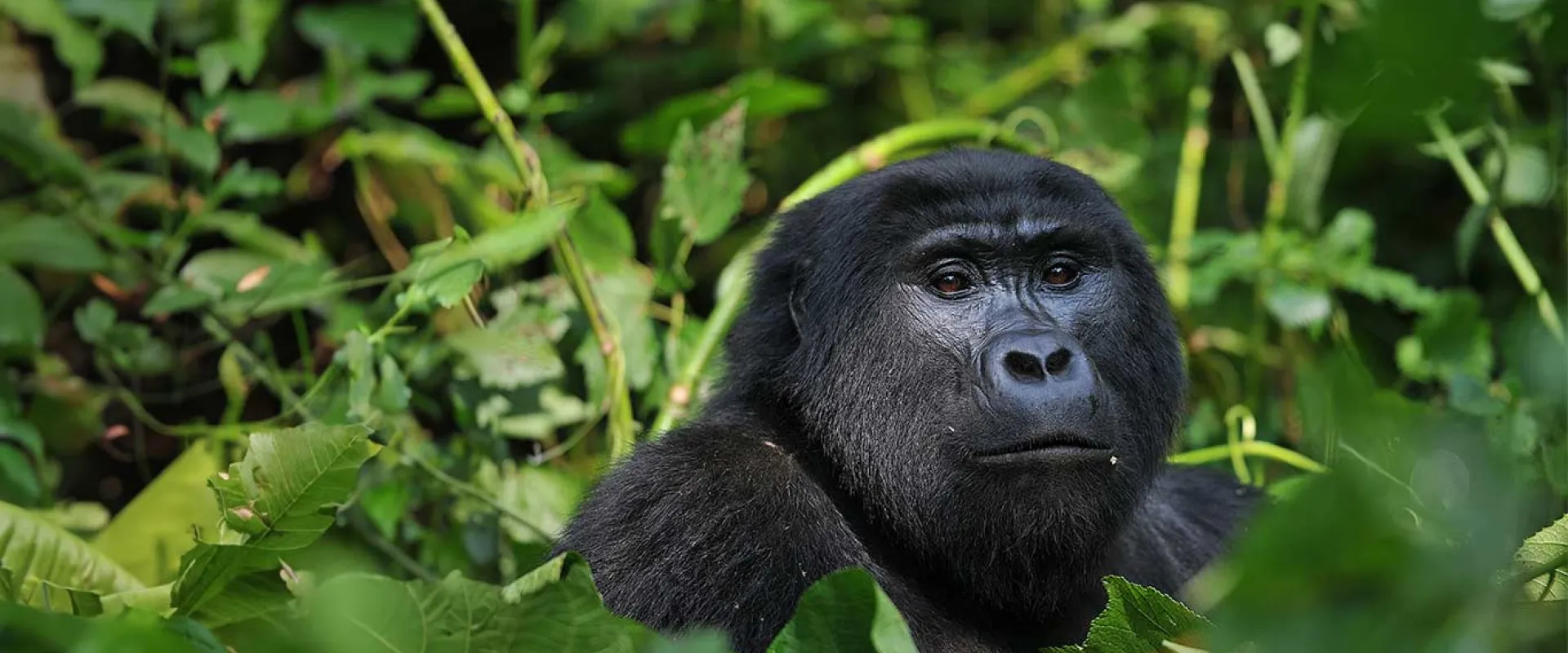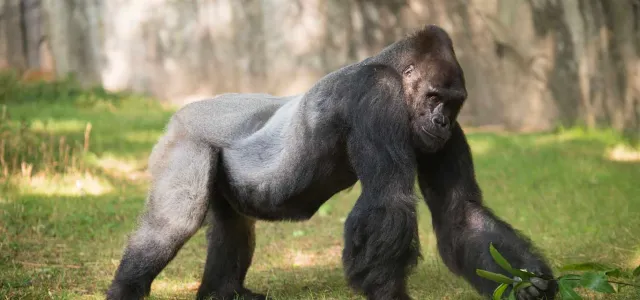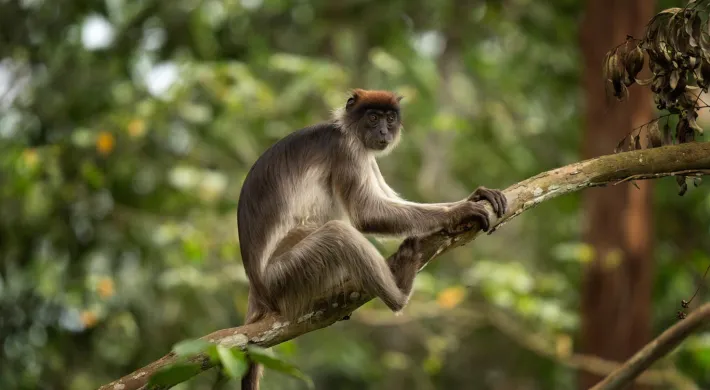North Carolina Zoo is helping to save gorillas in the wild. We equip rangers with the tools they need to track and reduce threats to gorillas as well as count the gorillas themselves. In addition, we are assessing the potential risk of disease transmission between gorillas, livestock, and people.
The World’s Most Endangered Ape
Nigeria’s Cross River region is one of Africa’s most important biodiversity hotspots, but its wildlife are under significant threat from poaching and habitat loss, made worse by some of the highest human population densities in the world. The Cross River gorilla, found only in a few small, mountainous pockets of forest along the Nigeria-Cameroon border, is the most endangered ape in Africa, with only about 300 individuals remaining. Led by the Zoo’s Dr. Rich Bergl, we have been working to help save these gorillas by supporting better protection in the wild and by researching the threat posed by diseases to the gorillas. By working to conserve these gorillas, our efforts serve as an umbrella for the rest of the region’s biodiversity, with action taken to preserve the gorillas helping to ensure the conservation of many other plant and animal species.
Working closely with our partners, at Wildlife Conservation Society (WCS) Nigeria, the Zoo has trained, equipped, and supported rangers to better protect this species in the wild. These efforts have become a case study on the use of SMART conservation software in the region, and the team on the ground has become a global SMART leader. SMART has helped WCS Nigeria to improve the effectiveness of law enforcement patrols and to more efficiently monitor illegal activities at all its sites. Using SMART has contributed to a significant increase in patrol effort (67%), a drastic reduction in hunting pressure (71%), and stable or slightly increasing wildlife populations at all WCS sites in Nigeria since implementation began.
Working with Emory University, the Zoo is also researching disease in Cross River gorillas, humans, and livestock populations to see if diseases may be transmitted to the gorillas. Results from the current genetic and parasitology work are still pending, but initial data suggest the presence of several human pathogens in the gorilla population. This information will help us better understand the health and genetics of the small remaining gorilla population, and will improve conservation planning efforts to reduce threats to both gorillas and the people who live in communities near the gorillas’ habitat.
Partners: Cameroon Ministry of Forests and Wildlife (MINFOF), Cross River State Forestry Commission, Emory University, International Gorilla Conservation Programme (IGCP), Max Planck Institute for Evolutionary Anthropology, NC State University, Nigeria National Parks Service, Wildlife Conservation Society (WCS)



